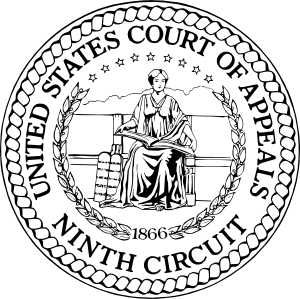
Ninth Circuit BAP Denies Retroactive Approval of Postpetition Financing
Section 364(a) of the Bankruptcy Code allows a debtor to incur unsecured debt, like trade debt, in the ordinary course of business. Section 364(b) of the Code provides, however, that when a debtor plans to incur unsecured debt, like a loan, outside the ordinary course, the debt must be pre-approved by the bankruptcy court after notice to creditors and a hearing. The purpose of these provisions is to allow de minimis debt needed to maintain a debtor’s business without much disruption, while carefully monitoring substantial, new debt that might have priority over other unsecured prepetition claims.
In Boss Litho, Inc. v. Bank of Hope (In re Boss Litho, Inc.), BAP Case No. CC-18-1105 (LSF) (B.A.P. 9th Cir. Nov. 20, 2018), the Bankruptcy Appellate Panel for the Ninth Circuit (BAP) recently denied retroactive approval of a debtor’s postpetition unsecured financing, reminding lenders that section 364(b)’s restrictions should not be hastily ignored without consequences.
A month after if filed chapter 11, the debtor filed a motion to approve financing as unsecured credit allowable as an administrative expense claim. The proposed financing, in the amount of $250,000, was to be provided by the debtor’s principal for working capital needs.
Prior to obtaining court approval of the financing, the debtor’s principal had already advanced $19,000 postpetition to the debtor, and the debtor requested retroactive approval of such advance.
A secured creditor objected to the retroactive approval of the amounts advanced ahead of court approval. The debtor countered that the postpetition advance was necessary to avoid the debtor losing business.
The bankruptcy court ultimately approved the proposed financing, but denied retroactive approval of the amounts advanced prior to court approval.
Pursuant to section 364(b) of the Bankruptcy Code, a debtor in possession generally must obtain court approval before incurring unsecured debt outside the ordinary course. See In re Harbin, 486 F.3d 510, 521 (9th Cir. 2007). If the debtor has not obtained prior court approval, the bankruptcy court may retroactively approve the transaction in exceptional circumstances. Id. at 521-22.
In the Ninth Circuit, in deciding whether to grant retroactive approval of postpetition financing, the bankruptcy court should consider:
- whether the financing transaction benefits the bankruptcy estate;
- whether the [debtor] has adequately explained its failure to seek prior authorization or otherwise established that it acted in good faith when it failed to seek prior authorization;
- whether there is full compliance with the requirements of section 364(b); and
- whether the circumstances of the case present one of those rare situations in which retroactive authorization is appropriate.
Id. at 523 (emphasis added). While the Harbin case dealt with secured postpetition financing, in the Boss Litho case the BAP found the same reasoning applicable to unsecured financing.
Ignoring the Harbin case, the debtor urged the bankruptcy court to apply the easier legal standard from the Second Circuit, which looks at:
- whether the financing would have been approved if timely application were made;
- whether creditors have been harmed by a continuation of the business made possible by the loan; and
- whether the debtor and lender honestly believed that they had authority to enter into the transaction.
In re Am. Cooler Co., 125 F.2d 496, 497 (2d. Cir. 1942).
The BAP did not believe it had authority to adopt the Second Circuit’s standard and, instead, found that the bankruptcy court did not abuse its discretion under the standard set forth in Harbin. In particular, the BAP found that the debtor had not demonstrated that exceptional circumstances warranted obtaining postpetition financing prior to obtaining court approval. The BAP noted that that the debtor’s business justification and advance notice to the bankruptcy court at a prior hearing did not suffice to warrant retroactive approval of the principal’s advance.
Takeaway: while there may exist circumstances where a debtor absolutely must have access to funds prior to bankruptcy court approval, those circumstances are generally rare. In most circumstances, any lender providing postpetition financing should plan ahead of the bankruptcy filing with respect to the debtor’s capital needs.





